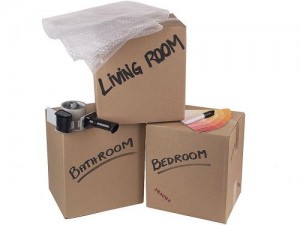Why Use a Real Estate Attorney

For most people, buying a home is the largest and most significant purchase they’ll ever make. Hiring a real estate attorney early in the process will protect you against the unexpected, and ensure a smooth and low-stress closing. Every state and sometimes regions within states have differing requirements. Some states leave that as an option open to the buyer and seller while others mandate it as a necessity. Your local real estate agent should be able to advise you what the protocol is in the area in which you are buying.
A real estate lawyer will protect your rights and interests in the transaction…unless you are using an Exclusive Buyer Agent; they are the only party truly “on your side”. Hiring a real estate attorney is a smart choice. A real estate attorney takes over after the selling price contract terms have established and all parties have signed. They will review the contract itself, negotiate repairs based on the home inspection report, and collaborate with the title company.
A real estate lawyer has the experience and training to handle the unique issues regarding real property, and the problems most people can’t anticipate. They see a lot of contracts and know the local customs, and can help cut through roadblocks. In most states a real estate agents cannot draft changes to the contract or give legal advice and very few transactions fit into a “boilerplate” contract. In addition, most Realtor form contracts are drafted to the benefit of the Seller; an attorney will add language to further protect a buyer’s interests.
Your lawyer will review the purchase agreement during the contract review period and will check the fine print of the Conditions, Covenants and Restrictions (CC&Rs) in common interest developments like condominiums, coops, country club communities, developments, and townhome projects.
Your attorney works with your mortgage loan officer, the other party’s attorney and agents to make sure that dates are set for attorney approval, home inspection, title search, mortgage commitment and other contingencies are reasonable and achievable.
Your attorney will also review important documents, including legal descriptions, mortgage loan documents, the property survey, and the title and title insurance policy, and deed.
The attorney will inspect important documents for common mistakes such as typos and misspelled names, including the legal description of the home.
The bill of sale may be another important part of the transaction that categorizes and inventories any personal property, such as appliances or furnishings, that are to be included as part of the deal.
They are also extremely helpful in negotiating for unpaid prorated expenses due to you from the seller, such as: property taxes, condominium assessments, and utilities
In most states, attorneys can change legal language in a purchase contract and void a purchase contract under state laws. You might need this in case an inspection comes back with serious red flags such as mold, plumbing, or foundation issues.
Your attorney attends the closing, to ensure the process moves along efficiently and effectively. In the case of problems/issues, the attorney will counsel and represent you.
Your attorney has no direct emotional involvement in the transaction, and no conflict of interest. You’ll appreciate a levelheaded counselor by your side if the situation becomes difficult.
You’ll receive something of great value: peace of mind!











 Moving into a new house is exciting, but the list of “to dos” can be overwhelming. You not only have to pack and prep the new house, but you have to tie up all the loose ends at the old place. Here are 10 tasks that are easily overlooked when moving into a new home – if you take care of these, you’ll have a leg up on moving day.
Moving into a new house is exciting, but the list of “to dos” can be overwhelming. You not only have to pack and prep the new house, but you have to tie up all the loose ends at the old place. Here are 10 tasks that are easily overlooked when moving into a new home – if you take care of these, you’ll have a leg up on moving day. Kim N. Bregman
Kim N. Bregman